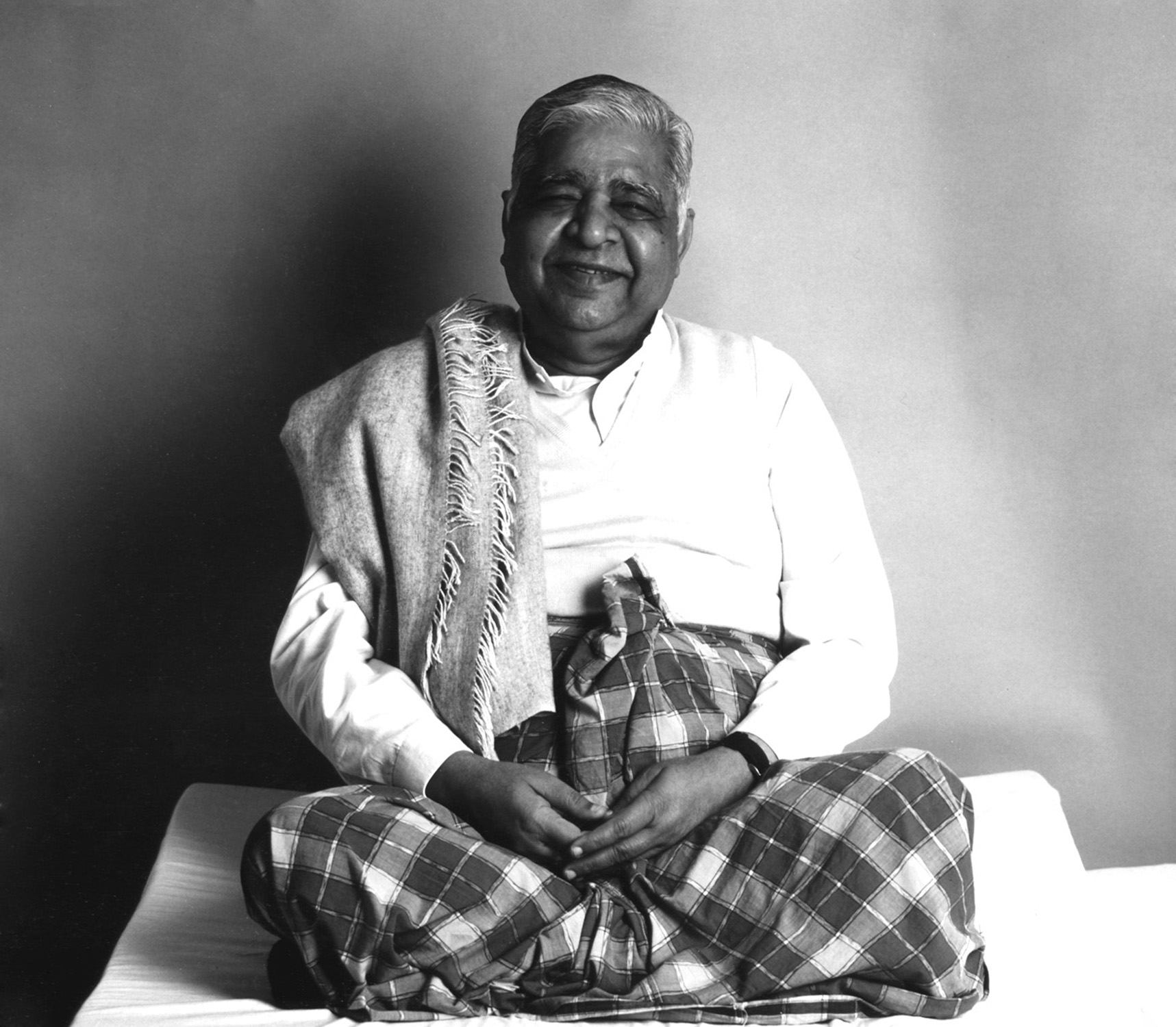To Vipassana or not to Vipassana.
Note: The 10 Day Silent Vipassana Retreat is a standardise course on insight meditation taught through videos recorded in 1991 of the late S.N. Goenka, who follows a Burmese tradition that aimed to "stay true to the original teachings of the Buddha". Goenka has been dubbed as "The Man who Taught the World to Meditate".
People go to all sorts of exotic places to become enlightened but as we’ve recently discovered in our Vipassana retreat, you don’t need to go very far: the path to happiness starts in your nostrils... of all possible places. We learnt this during the well-known Vipassana 10 Day Silent Retreat, which was a unique opportunity to observe the crazy workings of the mind, as well as an emotional roller-coaster, informative, puzzling, inspiring, challenging and filled with moments of -at times hilarious- illumination.
Facing about ten hours of daily meditation for ten days, first thing you do is try to get comfortable, which is key to to endure with the least amount of physical pain. So you (and everyone else) start experimenting with all imaginable combinations of cushions, benches, back rests, buckwheat seats and any other meditation toy available until you hit that magic spot of painless serenity. For me it ended up being a chair, for one other guy it was eleven cushions arranged in three wobbly towers. Eleven! It doesn’t matter: it hurts, and very quickly the corridor leading to the meditation hall starts to look like an audition for the Swan Lake, with everyone stretching and warming up. Pain however is not the only challenge, drowsiness can be even worse. Trying to stay awake can be physically and mentally excruciating.... How will my mind become sharper if I keep falling asleep? The recorded voice of the late Mr. Goenka repeatedly shows us the way: “Keep working diligently. Patiently and persistently.”
Another big challenge is the lack of all the inputs we are so used to having. Any kind of verbal or visual communication is prohibited and you are asked to hand in any electronic devices, books, notepads, pens... You are suddenly left with nothing but your own thoughts and the practice. Would you not go mad? I couldn’t resist talking to the squirrels (they’re so stressed out!) but I don’t think that counts. Admittedly I quite enjoyed being separated from my phone, but my hyperactive brain struggled without anything to read, not even guru Mr. Goenka’s bio! So I ended up reading anything readable, like the washing instructions of my sleeping bag and the medicines prospectus (never imagined aspirins were so dangerous!) Then suddenly, you get a glimpse of another participant READING A BOOK!! She’s cheating!! Of course, you want to cheat too. It’s seems OK now. So you get back to your room (that same room you’re sharing in silence with a stranger) and very quietly take out the notepad and pen that you refused to hand in thinking there could be an emergency, like now, and start writing quietly, trying not to make any suspicious noises. It feels so good and natural...but then... the guilt (which happens faster if you’ve had a catholic upbringing). Now I will never be enlightened, I can’t even follow the rules for 10 days... but who knows... maybe humour will be my salvation.
An interesting concept I learnt is that according to Buddhist teachings, our unhappiness comes from feelings of craving and aversion and throughout our lives we’ve been accumulating stocks of both, creating these mind conditioning phenomena called Sankharas that we’re now trying to dissolve through the practice of Vipassana meditation. Despite the lack of evidence on the existence of Sankharas, I cannot help agreeing that your mind goes from craving to aversion and back again constantly. For example, you start noticing things like other people having private rooms; Why does this woman have a room for herself and I have to sleep with a stranger in a room divided by hanging sheets like a WW2 hospital? And why does Gina get peanut butter and toast for dinner and I get an apple? Next time I must remember to say I’m fructose intolerant. And why does that woman read a book without feeling guilty? And then, aversion: Am I creating a new Sankhara of aversion to meditating? I hate my meditation chair. Look at that unchanging timetable... it’s soul-destroying! But then, just when you think you can’t do this anymore and you’re ready to pack your stuff and leave, you get a moment of enlightenment and you realise that you’re being able to observe how your mind works from the distance, like an spectator, it’s really quite entertaining.
So you spend your days like this, from meditation to meditation, from times when you think you’re going to lose your shit to times of inner realisations, fantasising and dreaming about what the next meal will look like, wondering how you know you’re finally enlightened and then fighting real boredom (at some point I thought I was developing a hyperactive bladder from going so much to the toilet, but no, I was just feeding my Sankhara of boredom). Hence you end up creating your own moments of pleasure that become the highlight of your day, like keeping a cookie from lunch to eat it before bed time (I got the idea from the squirrels). Look at you! Not only you’re taking part in this Meditation Olympics, you’re also working on your delayed gratification skills!
Time goes by faster than you may think however and at some point whilst sitting like a lotus flower, you start feeling waves of tingling and vibrations sweeping throughout the body that take you totally by surprise. What is this? Are these the good vibrations the Beach Boys were talking about? We were quickly informed that those vibrations have nothing to do with a 60’s hit, instead it’s called ‘the free flow’ and we’d better not crave it or develop any kind of attachment otherwise we shall suffer. We must remain equanimous. Are you kidding me? This is the most exciting thing that’s happened to me in the past week! What they ask is the equivalent to having sex without wanting an orgasm, and remaining “perfectly equanimous” when you get it… So there it goes, another Sankhara of craving.
Despite being asked to sign that you will NOT leave the retreat, some people did leave. No surprise really but then, what kept me going despite it all? It was something that was not mentioned at all: self-compassion. I was lucky enough to have some previous practice in mindfulness that let me be kind to myself, accepting that this is hard and that it’s OK feeling tired, frustrated and wanting the pain to stop. Only then I could open up to learning something from this retreat, and I did learn quite a few useful things. For starters, the meditation boost you get is just incredible, my concentration improved significantly and I am way more sensitive to physical sensations, which helps me locate more precisely the point or points where an emotional reaction might manifests in the body. Also since impermanence is one of the concepts that are systematically drilled during the retreat, I learnt to understand and accept the reality of the moment as it is, not as I would like it to be, and move on in a productive and useful way. Not bad lessons for a 10 day time investment.
In conclusion, this retreat was a good experience but it could have been truly amazing if the teachings were not so obsolete, the assistant teachers so scarily rigid and lacking any empathy, and if they provided any tools for people to use in their daily lives other than the unrealistic “meditate 2 hours every day.” And I might be wrong but I think there’s more to humans than swinging like monkeys from craving to aversion and back again, and I question whether I need to feel my body and mind disintegrate into subatomic particles in one breath to find enlightenment. Probably not. But in spite of all the incongruities and limited techniques, Mr. Goenka’s message was one of hope, carrying a true intention of helping people become happier while making others happier too, and I keep hearing his encouraging words in my head whenever I start a new task or think about future projects: “Keep working diligently. Diligently. Patiently and persistently. Work continuously. You’re bound to be successful. Bound to be successful.”
If you have decided that this is something you'd like to try, you can check some tips in our tips and tools section: Tips to Survive the 10 Day Silent Vipassana Retreat.
JOIN THE KENSHO LIFE
Sign up to our newsletter to receive our latest guided meditations, news and articles.



